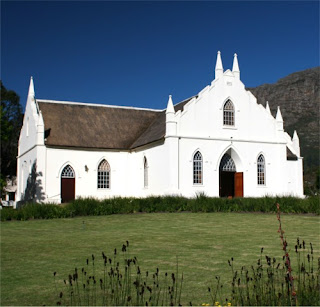Oxygen 5 was last night. It was completely different to the others in that most of the night was spent on creative arts.
The theme was Hope, and the service title was: Maybe the Best of Things (a quote from the Shawshank Redemption).
I began with a talk on 1 Peter 1:3-5 (I attach the talk below). It focussed on our 'living hope' which is given to us through the conquering of death by Jesus Christ.
From there we moved to thinking about three questions: What is it that you hope for? What do you think God hopes for you? How does this change the way you live now?
People were free to express their hopes through painting, sculpting or creative writing. 17 people were in attendance.
Talk:
What is it that you hope for? Think about that for a moment. What is it that you hope for in your life?
A new car? Job? House? A baby? More money? Friends?
We are prone to using the word hope synonymously with the word wish. I wish I had more money. I wish I had a better job. I wish I could have a holiday in Europe.
Wish and hope are different. The things we wish for might never happen. The Greek slave Aesop once said "We would often be sorry if our wishes were gratified."
But hope is on a different scale. Hope is macro, and wish is micro.
Hope, I’ve heard it said, is the last thing to die. It is the very final thing that we have left. But sometimes, it can seem like even God himself has lost his grip on our circumstances. Sometimes it can seem that we have dropped off God’s radar screen.
Was there a time when you felt that hope was all you had left? Nothing you could do could change your circumstances, and the tunnel appeared to have no end. What was your hope?
What is that hope that exists within us?
The apostle Peter describes this hope in 1 Peter 1:3-5. It says;
“Praise be to the God and Father of our Lord Jesus Christ! In his great mercy he has given us new birth into a living hope through the resurrection of Jesus Christ from the dead, and into an inheritance that can never perish, spoil or fade. This inheritance is kept in heaven for you, who through faith are shielded by God's power until the coming of the salvation that is ready to be revealed in the last time.” TNIV
What is our ‘living hope’?
The basis of our hope does not lie in our own perfection or righteousness. It lies in God’s great mercy, a living mercy that never dies. That mercy allows us to appear blameless before God despite our failings, or our circumstances.
Our living hope is our inheritance, which can never perish, spoil or fade. This inheritance is guaranteed, held aside for you, kept by God for you.
This inheritance is promised to you: “For if the inheritance depends on the law, then it no longer depends on a promise; but God in his grace gave it to Abraham through a promise.” Galatians 3:18
He gives it to you through a promise, not because of your efforts.
In your worst circumstance, what could be worse than death? What is the most extreme place we could be taken to, before we may lose all hope? Near death?
But our living hope is in Jesus Christ, who has conquered death. He has conquered the most unconquerable of circumstances. And through that, we are shielded by God’s power, because we have faith in him. Shielded by God’s power.
So what situation have you been in that wore you down to one final hope? What was that hope?
 I can't quite believe the latest National Bank campaign. Gone is the vibrant Nigel Kennedy Four Seasons soundtrack and in is a slowed down version which sounds just like your cassette walkman (if you can remember those) running out of batteries.
I can't quite believe the latest National Bank campaign. Gone is the vibrant Nigel Kennedy Four Seasons soundtrack and in is a slowed down version which sounds just like your cassette walkman (if you can remember those) running out of batteries.








































